‘Comedy for music by Hugo von Hofmannsthal. Music by Richard Strauss.’ That’s what the creators of Der Rosenkavalier wrote on the score, but don’t expect to see it reprinted in any programme books. Their careful wording doesn’t fit modern assumptions about Der Rosenkavalier, and not merely because it gives the librettist first place. There’s that troublesome word ‘comedy’, too. Advertising blurbs tell us (I know, I’ve written a couple) that Rosenkavalier is a bittersweet meditation on love, transience and loss. Yet its creators meant it to be funny. ‘Don’t forget that the audience should also laugh!’ wrote Strauss to Hofmannsthal. ‘Laugh, not just smile or grin!’
Richard Jones’s Glyndebourne production never forgets that. Nor do the cast, who embody the show’s opera buffa spirit as joyously — and as touchingly — as if they were in The Marriage of Figaro. There’s no reason why the Marschallin has to be a campy ageing diva. The work’s creators specified that she’s 32 at most, and it makes perfect narrative sense for her to be a lot younger. Rachel Willis-Sorensen’s Marie Therese (the Marschallin, here, is a persona that she puts on with her wig and panniers) is plausibly in the same age bracket as Octavian (Kate Lindsey), and just as aroused by their illicit relationship: copping a quick, excited fondle even while Baron Ochs (Brindley Sherratt, singing like he’s savouring vintage port) is noisily mansplaining his own philosophy of sex.
This is a playful, smitten young couple, and their quarrel at the end of Act One is a lovers’ tiff rather than a tragic farewell. The music provides all the subtext necessary, though Jones sets it up with telling details: a moment of ardent eye contact from Octavian, a sweet, brave smile from the Marschallin, or the way Louise Alder’s bright, anxious Sophie squeezes Octavian’s hand for reassurance. Robin Ticciati and the London Philharmonic dance along with operetta lightness and swing, the big set pieces unfold at conversational pace, and Jones tactfully deflates the Marschallin’s Act One soliloquy, so that instead of the operatic equivalent of a Sondheim torch song we get a lively but troubled young woman opening up to her therapist. Difficult to be po-faced when there’s an unexplained old bloke sitting there looking exactly like Sigmund Freud.
And if that sounds crass, I can’t deny that the cartoonish costumes and lurid retro-kitsch sets initially made me wince. It looks like a collision between a G Plan showroom and Willy Wonka and the Chocolate Factory, with the Marschallin’s servants as Oompa Loompas. But I was wrong — after all, virtually the first instruction that Strauss writes in his score is ‘parodistisch!’. The tension between artifice and emotion at the heart of Der Rosenkavalier becomes even more poignant when it’s played sincerely for laughs, and Jones’s stylised, self-consciously quirky stagecraft complements some of the freshest, most lovable central performances you could possibly hope for. The contradictions work, and it’s all rather wonderful.
Which, to be honest, I did not expect. This production has a history: when it first appeared in 2014, one of our crustier opera critics (they do exist) commented ungallantly on one singer’s physical appearance. The ensuing micro-scandal (known, horribly, as ‘Dumpygate’) climaxed when a distinguished mezzo-soprano swept on to Norman Lebrecht’s blog to proclaim in emphatic capitals that ‘OPERA is ALL about the voice’ (‘It’s not an opinion, it’s a FACT’). Musicians come out with stuff like this fairly frequently; I’ve no idea if it happens in other spheres. Do bricklayers write to the Architects’ Journal to insist that no, actually it’s all about the pointing?
Anyhow, a gala at the Royal Albert Hall for Anna Netrebko and the tenor Yusif Eyvazov tested that particular premise to destruction. Netrebko’s voice is a marvel: simultaneously soft-edged and intensely centred, it swells with no perceptible effort until it’s suddenly there at full beam, flooding the room with radiance. It can be fragile, dusky or guttural, and Netrebko manoeuvres it with regal aplomb. Eyvazov, meanwhile, has a nice bronzed tenor, and was apparently a fine Macduff at the Royal Opera the other week. One-to-one with Netrebko in that colossal space, he simply wilted — though as they paced about the stage, arms flailing, both singers certainly appeared to be enjoying themselves.
As for the rest: well, in the absence of any printed text or surtitles, we were left with some classy evening wear and that (admittedly fabulous) voice. Deprived of verbal meaning, arias by Verdi, Puccini and Giordano, plus Strauss’s ‘Cäcilie’ and a number from Rimsky-Korsakov’s The Tsar’s Bride were all just so much lovely noise. The audience didn’t even need that, whooping and flashing away with their smartphones before anyone had sung a note. So, there you go, opera companies: no need for sets, directors, words or even apparently voices. Think of the money you’ll save.
Got something to add? Join the discussion and comment below.
Get 10 issues for just $10
Subscribe to The Spectator Australia today for the next 10 magazine issues, plus full online access, for just $10.
You might disagree with half of it, but you’ll enjoy reading all of it. Try your first month for free, then just $2 a week for the remainder of your first year.

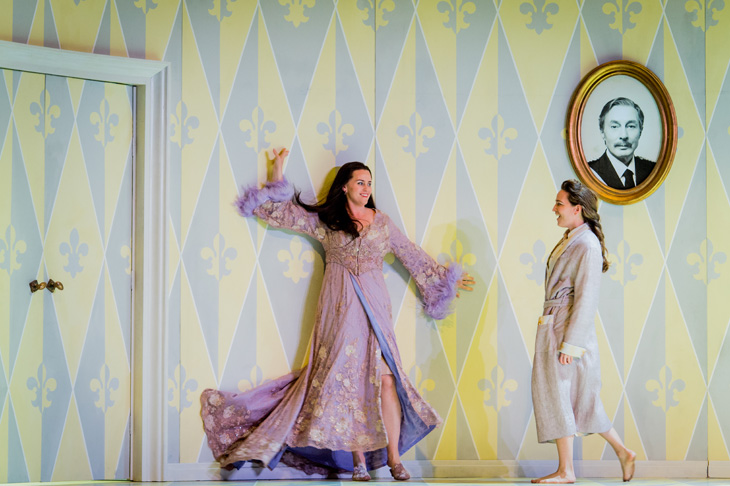
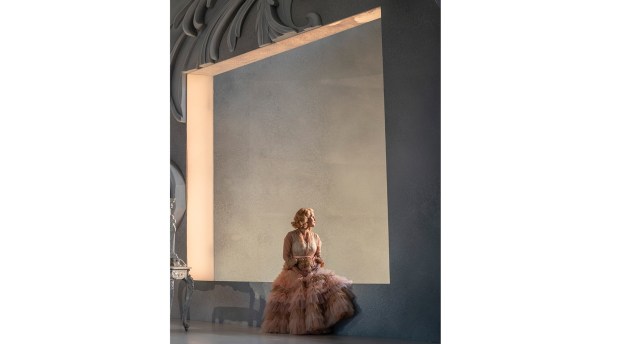
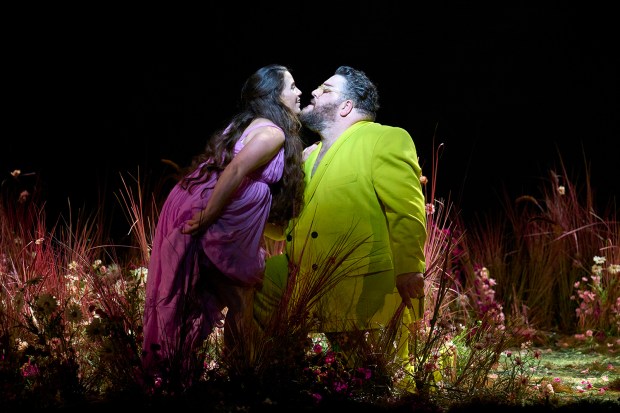
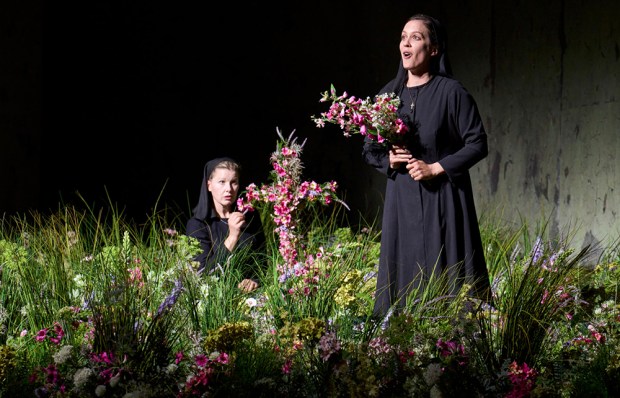
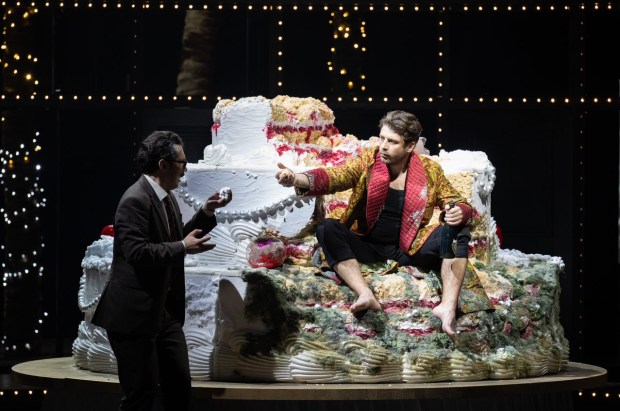
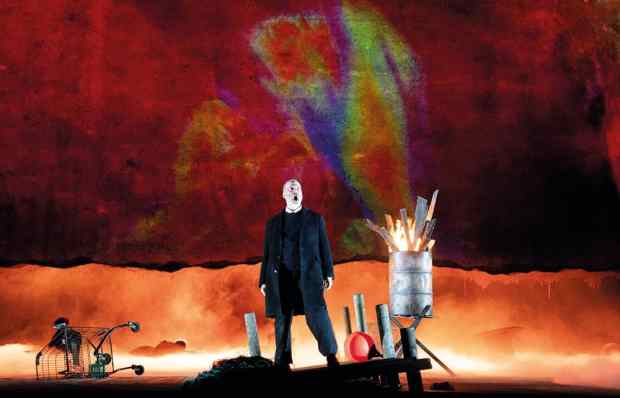
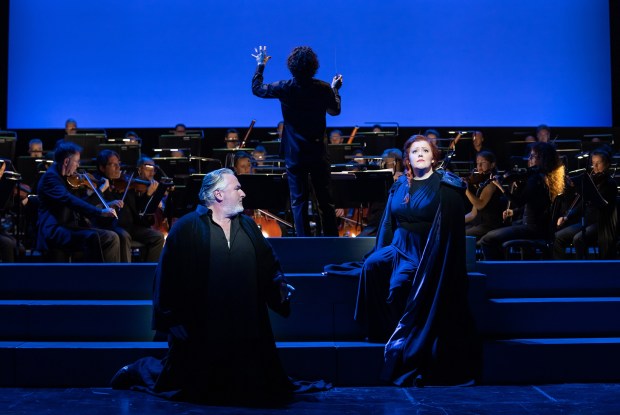






Comments
Don't miss out
Join the conversation with other Spectator Australia readers. Subscribe to leave a comment.
SUBSCRIBEAlready a subscriber? Log in